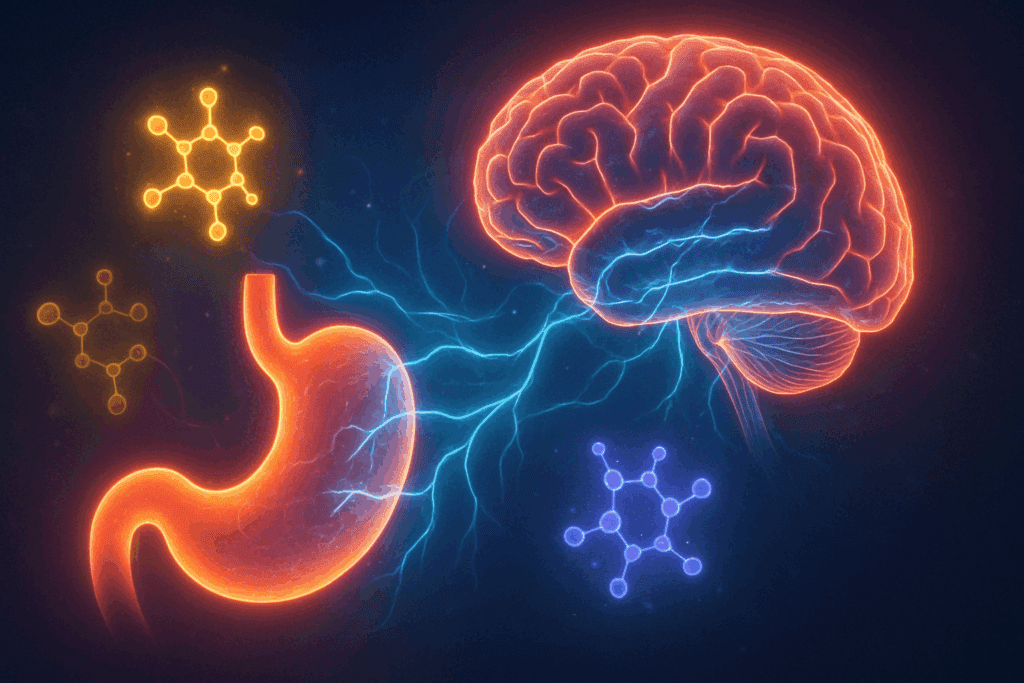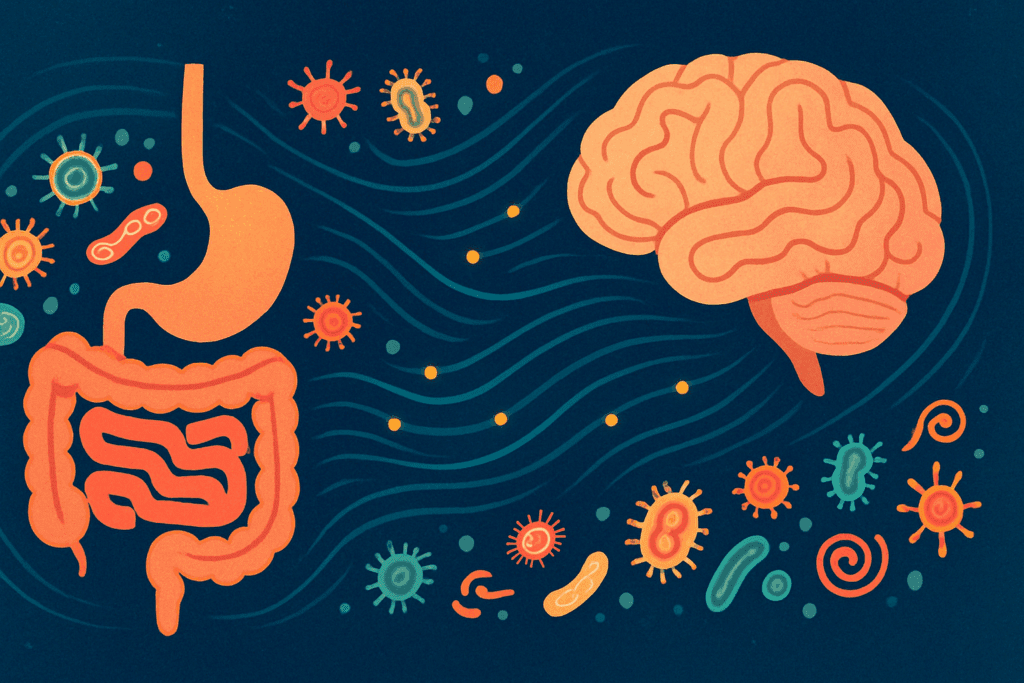For many people navigating modern wellness culture, the act of eating is no longer simply about satisfying hunger. Instead, it often intersects with emotional states, dietary expectations, and health-related intentions. Whether you’re someone recovering from disordered eating patterns, managing a chronic illness, or simply trying to adopt healthier habits, you may have found yourself forcing yourself to eat despite not being hungry. This seemingly paradoxical behavior isn’t as uncommon as it sounds. In fact, understanding when, why, and how it can be beneficial—or even necessary—requires a deeper exploration of hunger cues, the body’s nutritional needs, and the psychological relationship we have with food.
You may also like: How to Stop Emotional Eating and Regain Control: Mindful Nutrition Strategies That Support a Healthier Lifestyle
We often associate eating solely with appetite, but that perspective oversimplifies a complex physiological and emotional process. There are times when a person might not feel an appetite but still needs to nourish their body, especially in cases of recovery, stress, or metabolic imbalance. It’s also common for people to wonder: “Should I be forcing myself to eat food despite not being hungry?” or even question why they don’t have an appetite to begin with. By unpacking these questions and examining the science behind appetite regulation, we can move toward a more nuanced and compassionate understanding of our bodies’ needs.

What Are Hunger Cues and Why Do They Matter?
Hunger cues are the internal signals that alert your body and brain that it needs nourishment. These signals can manifest physically, such as through stomach growling, lightheadedness, or fatigue, and emotionally, through irritability or difficulty concentrating. These cues are governed primarily by a complex interplay of hormones, including ghrelin (which stimulates appetite) and leptin (which signals satiety). However, the accuracy and intensity of these cues can vary widely depending on many factors, including stress levels, sleep patterns, and medical conditions.
The ability to interpret and respond to hunger cues is a critical component of mindful eating. When you understand your body’s signals, you’re better able to respond in ways that promote well-being, rather than react out of habit, emotion, or social pressure. Unfortunately, in today’s fast-paced environment, it’s common for individuals to override or ignore these cues—either by skipping meals due to busyness or by forcing themselves to eat not appetite studies have shown. In some cases, this can lead to a disconnection from the body’s natural regulation systems, making it difficult to recognize genuine hunger and fullness signals.

Why You Might Not Feel Hungry Even When You Need to Eat
A lack of appetite doesn’t always mean your body doesn’t need food. Several physiological and psychological conditions can suppress appetite, including depression, anxiety, chronic illness, hormonal imbalances, and certain medications. Stress, in particular, plays a notable role in appetite suppression by increasing cortisol levels, which can dull hunger in some individuals. In other situations, such as during illness or after extended fasting, the body’s natural appetite signals can become muted, even when nutritional replenishment is crucial.
Understanding this disconnection can help demystify the experience of forcing yourself to eat not appetite studies support the idea that diminished appetite does not always correlate with reduced nutritional need. Athletes, for instance, often have to consume food on a strict schedule regardless of hunger cues to support energy demands. Similarly, individuals recovering from eating disorders are frequently encouraged to follow structured meal plans to retrain their internal hunger and satiety signals. In these instances, eating without hunger is not only appropriate but essential to healing and performance.

The Science of Appetite Regulation and Its Disruptions
Appetite is regulated by a finely tuned communication network between the brain, gut, and endocrine system. This system is responsive not only to the body’s current energy needs but also to external stimuli such as stress, temperature, and even social cues. Disruptions in this regulatory system can make it difficult for individuals to accurately perceive when they are hungry or full. For example, conditions like hypothyroidism, gastrointestinal disorders, and insulin resistance can interfere with the hormonal signals that trigger appetite.
Moreover, the gut-brain axis—a bi-directional communication pathway between the gastrointestinal tract and central nervous system—plays a crucial role in regulating hunger. Research has demonstrated that imbalances in gut microbiota can impact neurotransmitter production, which in turn influences mood and appetite. Thus, when someone says, “I want to eat,” but can’t identify a physical urge to do so, it may be a result of underlying biological processes rather than a psychological block. In such cases, forcing myself to eat food despite not being hungry may be necessary to meet caloric and nutrient needs while these internal systems stabilize.
Emotional and Psychological Influences on Eating Without Appetite
It’s important to recognize that eating behaviors are not driven solely by biological hunger. Emotions, habits, and cultural norms also play a substantial role in when and how we eat. For example, emotional eating often arises in response to stress, boredom, sadness, or even celebration, and can occur in the absence of true hunger. On the flip side, emotional distress may suppress appetite, leading to the opposite issue: needing nourishment but lacking the desire to eat.
The act of forcing yourself to eat not appetite studies highlight that such decisions are frequently tied to psychological frameworks. In therapeutic settings, clients are often encouraged to view food as medicine when appetite is absent. By reframing eating as a supportive, self-compassionate act rather than a chore, individuals can work toward healing relationships with food and body. Mental health support is especially critical for those recovering from disordered eating, where disrupted hunger cues are part of a larger pattern of psychological dysregulation.

When Forcing Yourself to Eat Becomes a Necessary Part of Healing
There are several medically justified scenarios in which forcing yourself to eat, despite lacking hunger, becomes an essential part of healing. Individuals undergoing chemotherapy or recovering from surgery, for instance, may lose their appetite due to medication side effects or metabolic changes. However, nutritional intake remains crucial for recovery, immune support, and maintaining muscle mass. In such cases, structured meal timing, nutrient-dense foods, and oral supplements may be used to support adequate intake.
Similarly, for individuals experiencing long-term appetite suppression due to chronic illness or mental health conditions, proactively eating can prevent unintended weight loss, malnutrition, and muscle wasting. This is also relevant in geriatric populations, where reduced appetite can lead to frailty and complications. For these groups, forcing myself to eat food despite not being hungry may not only be helpful but lifesaving. Support from dietitians, therapists, and caregivers can make this process more manageable and less distressing.

Mindful Eating and Intuitive Strategies When Hunger Cues Are Absent
Mindful eating emphasizes awareness, presence, and a nonjudgmental attitude toward food choices and bodily sensations. However, when hunger cues are absent or unreliable, practicing mindful eating can feel confusing or even impossible. In these cases, intuitive eating strategies can still be adapted to foster a healthier, more supportive eating experience. One approach involves using the clock as a guide—eating at consistent times throughout the day to create structure and re-regulate appetite rhythms.
Another strategy involves tuning into subtle cues beyond the traditional stomach growl, such as fatigue, irritability, or difficulty concentrating. These can signal low energy availability and the need for nourishment. Additionally, gentle nutrition practices encourage focusing on food quality, variety, and enjoyment, even in the absence of strong hunger. This mindset helps reduce the psychological burden of “forcing” oneself to eat and instead frames it as caring for one’s future self. As you practice these techniques, you may find yourself shifting from “I want to eat” as a reluctant obligation to a more intuitive, self-nurturing instinct.
Reconnecting with Your Body Through Consistent Nourishment
When hunger signals are disrupted or absent, the process of reestablishing body trust can be a gradual journey. Consistently providing your body with regular meals and snacks, regardless of hunger, sends the message that food is safe, available, and supportive. Over time, this can help restore the sensitivity and reliability of hunger and fullness cues. It also provides an important buffer against the physical and emotional risks associated with under-eating, such as fatigue, mood instability, and cognitive decline.
Reconnection doesn’t happen overnight. It may require patience, consistency, and professional support. Journaling about your experiences with eating, noticing emotional patterns, and reflecting on what your body needs in a given moment can all be helpful tools in this process. These practices foster a compassionate dialogue between mind and body, replacing criticism or confusion with curiosity and care. The more often you choose to eat in alignment with your body’s broader needs, even without strong appetite cues, the easier it becomes to maintain that connection.
Navigating Social and Cultural Pressures Around Eating
Social norms and cultural expectations often influence how we perceive and respond to hunger. In many settings, refusing food may be seen as impolite or concerning, while eating without hunger might be normalized during celebrations or emotional gatherings. These dynamics can make it difficult to distinguish between genuine need and social obligation. They can also contribute to internalized beliefs about when it’s “appropriate” to eat, further complicating the experience of diminished appetite.
In some cultures, food is deeply tied to expressions of love, identity, and tradition. While these associations can be beautiful and enriching, they can also create pressure to eat when one is not physically hungry. Learning to navigate these scenarios with awareness and self-compassion is key. Whether you’re politely declining a second helping at a family gathering or explaining to a friend why you’re choosing to eat even though you don’t feel hungry, honoring your body’s needs—both physical and emotional—is an act of self-respect.
Practical Tips for Eating Without Hunger in a Healthy Way
For those who find themselves forcing themselves to eat not appetite studies and personal experiences alike suggest that a structured, compassionate approach can ease the process. Begin by choosing small, manageable portions of nutrient-dense foods that are easy to digest. Smoothies, soups, nut butters, and yogurt are often tolerated well and can provide substantial nourishment without overwhelming the system.
Temperature and texture preferences also matter. Some people find warm foods more comforting, while others prefer the crispness of raw fruits or vegetables. Experiment with different combinations to discover what feels most satisfying. Hydration is another key factor—dehydration can blunt appetite, so sipping water, herbal teas, or electrolyte-rich drinks throughout the day can support both hydration and appetite regulation. If the idea of eating feels daunting, set gentle goals, such as “I want to eat a few bites every three hours” or “I’ll try adding one extra snack today.”

Understanding When to Seek Professional Support
Persistent lack of appetite, weight loss, or difficulty maintaining nutritional intake should never be ignored. If you find yourself constantly forcing yourself to eat food despite not being hungry and are struggling to meet your body’s needs, it may be time to consult a healthcare provider. Registered dietitians, therapists, and primary care physicians can help identify underlying causes, offer diagnostic evaluations, and develop personalized strategies for improving your eating patterns.
This is especially true for individuals with histories of eating disorders, chronic illnesses, or mental health conditions that affect appetite. These complex cases often require multidisciplinary support to ensure that physical and emotional health are addressed in tandem. Remember, needing help is not a weakness—it is a courageous and proactive step toward healing. As you build your support team, you may find it easier to make peace with the idea of eating even when hunger isn’t present.
Frequently Asked Questions: Understanding Hunger Cues and Eating Without Appetite
1. Why might someone feel guilty about forcing themselves to eat when they’re not hungry?
Guilt often stems from a belief that eating should always align with physical hunger. Social messaging tends to overemphasize willpower and restraint, which can lead to shame when someone finds themselves forcing themselves to eat not appetite studies explain this tension by linking it to societal diet culture and emotional conditioning. However, eating without hunger isn’t inherently wrong; in many cases, it’s an act of nourishment. It’s important to recognize that forcing myself to eat food despite not being hungry may be necessary during recovery or to prevent energy crashes, especially when intuitive cues are blunted. Building a healthy relationship with food includes understanding that emotional, preventative, or functional reasons to eat are valid.
2. Can meal prepping help people who struggle with appetite loss?
Yes, meal prepping can be a powerful support tool for those experiencing inconsistent appetite. When appetite is low, decisions about what or when to eat can feel overwhelming. Having pre-prepared meals available reduces that cognitive burden and increases the likelihood of eating, even when the desire isn’t present. If you frequently say “I want to eat” but don’t act on it due to lack of hunger, a stocked fridge with appealing, easy options can bridge the gap. In this context, forcing myself to eat food despite not being hungry becomes less of a chore and more of a structured wellness practice.
3. How can someone distinguish between emotional and physical hunger in real time?
Physical hunger tends to come on gradually and can be satisfied with a variety of foods, while emotional hunger often arises suddenly and is usually tied to a specific craving or feeling. However, this distinction isn’t always clear-cut, especially in those recovering from appetite dysregulation. It can help to pause and check in with your body—ask questions like, “Am I tired, lonely, or stressed?” or “Have I eaten enough today?” Forcing yourself to eat not appetite studies suggest that acknowledging these subtle distinctions and responding with curiosity, not judgment, supports long-term behavioral change. When in doubt, nourishing the body is typically more helpful than not eating at all.
4. Are there long-term consequences of ignoring hunger cues regularly?
Repeatedly ignoring hunger signals can disrupt the body’s ability to regulate appetite effectively over time. The hypothalamus, which plays a central role in energy balance, can become less responsive, resulting in erratic eating patterns. Eventually, people may stop recognizing cues altogether, which is why forcing myself to eat food despite not being hungry can sometimes be part of healing that dysregulation. Consistency in fueling the body, even without overt appetite, can help reset biological rhythms. Long-term, this fosters better hormonal balance, mental clarity, and metabolic function.
5. What are some non-hunger-based reasons for eating that are still valid?
Eating is not exclusively about quelling hunger. Other valid reasons include preventing a blood sugar crash, social connection, athletic performance, and medication timing. For instance, someone might say “I want to eat” before an event or workout despite not being hungry, knowing their body will need that energy later. Forcing yourself to eat not appetite studies highlight that planning for future nutritional needs is not only rational but sometimes critical for sustained well-being. Context matters greatly, and understanding the “why” behind eating decisions fosters better self-awareness.
6. How can caregivers support someone who is struggling to eat without hunger?
Caregivers play a crucial role in helping individuals meet their nutritional needs during periods of low appetite. They can provide structured mealtimes, offer a variety of appealing options, and offer nonjudgmental encouragement. It’s helpful to avoid pressure and instead focus on positive reinforcement and gentle consistency. For someone regularly forcing myself to eat food despite not being hungry, having a compassionate presence nearby can ease the experience. In cases of chronic illness or mental health recovery, this support can significantly improve outcomes.
7. What role does taste play when appetite is low?
When hunger is absent, flavor can become a motivating factor in choosing to eat. People may gravitate toward foods that are rich in umami, lightly salted, or naturally sweet to stimulate desire. Forcing yourself to eat not appetite studies have explored how sensory appeal—color, texture, and aroma—can trigger interest in food even without biological hunger. Incorporating favorite seasonings or warming spices may encourage intake in a low-appetite phase. Understanding these sensory preferences can make the act of nourishing oneself more enjoyable, especially when appetite cues are unreliable.
8. Are there strategies for rebuilding appetite naturally over time?
Rebuilding appetite is a gradual process that often requires consistency, patience, and self-trust. Key strategies include eating on a schedule, engaging in light physical activity, managing stress, and optimizing sleep quality. Exposure to regular meals trains the body to anticipate and welcome food, eventually restoring hunger signals. If you’re frequently thinking, “I want to eat” but not experiencing a strong appetite, you may benefit from setting intentional mealtimes that coincide with times you feel most open to eating. Forcing myself to eat food despite not being hungry during these windows helps reset hormonal feedback loops related to hunger.
9. Can medication affect your ability to feel hunger even when your body needs fuel?
Absolutely. Many common medications, including antidepressants, stimulants, and chemotherapy agents, can blunt appetite as a side effect. In such cases, individuals may have to override natural cues and focus on structured nourishment. Forcing yourself to eat not appetite studies show this approach can reduce medication-related complications, such as fatigue, nutrient depletion, or unintended weight loss. Tracking your food intake and working with a registered dietitian can help ensure you’re meeting your body’s needs, even when hunger is diminished.
10. Is it okay to eat just because you know it’s time, even if you’re not craving anything?
Yes, this is a sound and often necessary approach, especially for individuals with irregular or absent hunger signals. The concept of meal timing is foundational in clinical nutrition, and it’s widely used to support energy balance, digestion, and metabolic function. Saying “I want to eat” even without a specific craving reflects a cognitive awareness that nourishment is needed. Forcing myself to eat food despite not being hungry in these structured ways is a proactive choice, not a failure to listen to the body. In fact, this level of attunement often leads to improved long-term appetite regulation and healthier relationships with food.
Conclusion: Reframing the Act of Eating as an Act of Self-Compassion
Forcing yourself to eat despite not being hungry is a nuanced behavior that can stem from physiological necessity, emotional context, or a strategic wellness decision. While it might initially feel counterintuitive, it can often be a necessary act of self-care, particularly for those navigating disrupted appetite cues or healing from illness. By understanding the mechanisms behind hunger and satiety, embracing intuitive and mindful eating practices, and recognizing when professional support is needed, individuals can reframe eating as a meaningful and compassionate choice.
If you frequently find yourself saying, “I want to eat” but can’t locate your appetite, know that you’re not alone. Your body may be asking for nourishment in ways that don’t always align with traditional hunger signals. Trusting that need—and responding to it with care—is a vital part of supporting long-term health and well-being. In a culture that often glorifies appetite suppression and food control, choosing to nourish yourself, even without hunger, can be a radical and healing act. Embrace that act. Honor your body’s needs. And remember: every bite taken with intention and compassion is a step toward reconnection, resilience, and renewed vitality.
Was this article helpful? Don’t let it stop with you. Share it right now with someone who needs to see it—whether it’s a friend, a colleague, or your whole network. And if staying ahead on this topic matters to you, subscribe to this publication for the most up-to-date information. You’ll get the latest insights delivered straight to you—no searching, no missing out.

